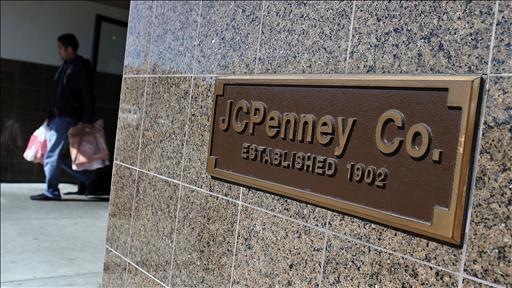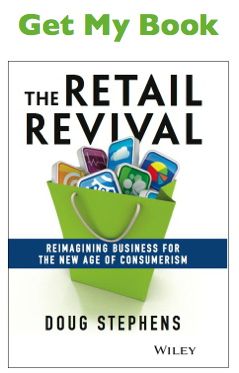By Doug Stephens

Ron Johnson is out and Mike Ullman is (back) in, and now the debate will begin anew over whether JCPenney can be saved. There will be those who believe that Ullman is just the dose of status quo that Penney needs to restore the company to order. Others will see the return of the deposed Ullman as the kiss of death and lament that Johnson wasn’t given more time. And of course, only time will tell who’s right and who’s wrong, in the debate over whether or not Penney can be resuscitated.
In the meantime, I’d like to pose a different question – one that hasn’t been asked as often.
Is JCPenney really worth saving?
And, would its salvation actually be a bad thing for the retail market in general?
I look at it this way; if the retail market were an old-growth forest, JCPenney would be like an enormous, rotting redwood in the center of it. And as such, it causes two problems: First, any serious attempts to shift it, as Ron Johnson attempted to do, risk toppling it – potentially killing every creature that feeds off it, lives in it or resides close to it. Second, because of its sheer size, it’s stifling other, healthier trees in the retail forest, depriving them of the things they need to grow. And, there are so many genuinely fascinating and original retail concepts sprouting promising roots right now. Bonobos, launching its cool Guide Store concept. Ladies online apparel retailer Keaton Row, matching shoppers with personal stylists. Warby Parker, reinventing how we buy prescription eyewear. Hointer, hacking the apparel shopping experience with new technologies. And plenty of others are doing amazingly creative things. All of them are fresh growth, and eager to flourish.
One has to wonder if the retail ecosystem might be healthier if Penney were just subjected to a controlled-burn and done away with, opening up fertile ground for a new generation of bright young retailers.
In other words, is bankruptcy the best outcome?
I don’t ask that question lightly or merely to be provocative. I recognize and empathize with the number of people for whom JCPenney represents their investment, their job, and their hope. I’m not being cavalier or trying to minimize the gravity of the situation.
But in order to accelerate the development of these new and innovative concepts, we need to clear out the dead wood. For the sake of the retail ecosystem, we need dynamic, new retail to flourish. A lingering, languishing JCPenney only impedes this. 
One has to wonder how long we’ll stand vigil over this dying brand? How long can we continue the same back and forth debate – “is or isn’t it dead yet?”
There’s a remarkable era of retailing ahead. Perhaps it’s time we move forward into it.

